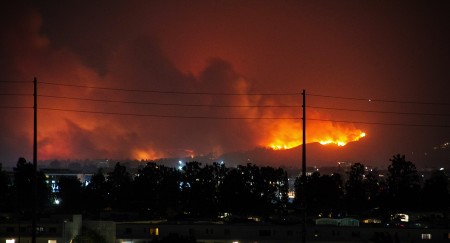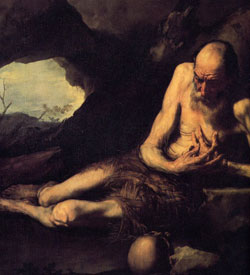Pope Francis endorsed the idea of an apology to the gay community - But many misunderstood
FREE Catholic Classes
As Pope Francis on Sunday backed the idea of apologizing to gay individuals who may feel marginalized by the Church, discussion has once again broken out over how to interpret the pontiff's words.
Highlights
Catholic Online (https://www.catholic.org)
7/1/2016 (8 years ago)
Published in Living Faith
Keywords: Pope Francis, gay, homosexuality, Church, apology
Vatican City, Italy (CNA) - Debate flared up overnight after the Pope responded to a question about recent comments made by Cardinal Reinhard Marx, who said the Church must apologize to homosexual persons for having "marginalized" them.
While Pope Francis did not actually make an apology to the gay community, his endorsement of the idea has exploded, in part because it has been taken by many as an open endorsement for the gay lifestyle, deviating from Church teaching.
On the other hand, Francis' acknowledgement that an apology might be in order on the part of some represents something that many in the gay community have been longing to hear, many of them rightfully so.
The Pope's comments also drew attention from those who claimed that they were a criticism of the U.S. bishops, who, while mourning the recent Orlando shooting at a gay nightclub, did not explicitly express solidarity with the gay community by name.
What is the correct interpretation of Francis' comments?
It is difficult to argue that the Pope was critiquing the U.S. bishops' response to the Orlando shooting, as his own language closely mirrored that of the bishops. The Pope did not mention the gay community in his own response to the shooting, but rather responded as he normally does to tragic events, with prayer and expressions of solidarity for the loss of any human life.
Furthermore, the Pope did not tell anyone to issue an actual apology. And his focus was not limited to the LGBT community. Rather, he made the broader statement that the Church "must not only ask forgiveness to the gay person who is offended," but also to all of the people "we could have defended and we didn't," including the poor, and women and children who are exploited.
He cited the Catechism, saying that homosexual individuals "must not be discriminated against, (but) must be respected and accompanied pastorally."
The Catechism teaches that based on Scripture, "tradition has always declared that 'homosexual acts are intrinsically disordered.'"
Homosexual acts, it continues, "are contrary to the natural law. They close the sexual act to the gift of life. They do not proceed from a genuine affective and sexual complementarity. Under no circumstances can they be approved."
When speaking of homosexual persons, however, the Catechism insists that most gay individuals face "a trial" due to their sexual orientation, and "must be accepted with respect, compassion, and sensitivity. Every sign of unjust discrimination in their regard should be avoided."
What Pope Francis said, then, is in no way an endorsement of the gay lifestyle, but rather clearly echoes Church teaching and displays his genuine pastoral concern for a group that has and frequently still does face hostility, including, at times, from within the Church.
Benedict XVI, while head of the Congregation for the Doctrine of the Faith, voiced similar thoughts in a 1986 letter to bishops on the pastoral care of homosexual persons, stressing that "it is deplorable that homosexual persons have been and are the object of violent malice in speech or in action."
Such treatment, he said, "deserves condemnation from the Church's pastors wherever it occurs."
So while Francis is not the first Pope to speak out about the need to respect homosexual persons, he is perhaps more vocal in making sure that message reaches both these individuals and the world.
The Pope's approval of an apology to the gay community can also be seen as a continuation of the synodal process.
One of the issues addressed at the 2014 and 2015 Synod of Bishops in Rome was how the Church might adopt a new language in communicating her teachings in modern society, particularly in relation to topics such as abortion, euthanasia, homosexuality and divorced-and-remarried Catholics.
In the words of Cardinal Timothy Dolan of New York, who spoke at an Oct. 8, 2014, event in Rome, adopting a new language was not just "a question of the immutability of the Church's truth, but our burning desire to find a language that can present it in a more gracious, compelling, cogent way."
Phrases such as "natural law," "intrinsically disordered," and living "in a perpetual state of sin," which are used in the Catechism to describe various irregular situations, were mentioned by synod fathers as expressions up for re-consideration.
While such phrases might express the Church's position clearly, the argument was that they are either rarely understood outside of the Church, or that the tone they emit exudes moral judgement rather than an invitation to join the family of Christ.
Viewed through this lens, Francis' encouragement of an apology for any wrongs done to homosexual persons is not a watering down of Church teaching. Rather, it can be read more accurately as representing his desire to change the Church's perspective for the purpose of dialogue.
The shift is not an issue of questioning doctrine, but of viewing and treating people, of encountering them with an unchanging doctrine in a more understandable and welcoming way.
Francis seems to be challenging us to see homosexual persons not primarily as those with "intrinsically disordered" inclinations, but as struggling brothers and sisters who need welcome, respect and accompaniment in order to eventually understand and accept the truth.
Another key in interpreting Francis can be found in his days as cardinal in Buenos Aires. In 2010, then-Cardinal Bergoglio wrote that a proposed bill to allow same-sex marriage and adoptions would "gravely injure the family."
"What is at stake here is the identity and survival of the family," he said in the letter. "At stake are the lives of so many children who will be discriminated against in advance, depriving them of the human maturation that God wanted to be given with a father and a mother. At stake is the outright rejection of the law of God, engraved also in our hearts."
Yet the cardinal, while clear in supporting Church teaching, also supported the legalization of same-sex civil unions, a move those close to him described as a strategy to protect the institution of marriage itself.
What is seen in that situation in Argentina - as well as the current situation with the comments on the gay community - is a stance that defends the Church's doctrine without being afraid to dialogue and encounter, to shake things up and "make a mess," as the Pope instructed the youth of Argentina to do three years ago.
---
'Help Give every Student and Teacher FREE resources for a world-class Moral Catholic Education'
Copyright 2021 - Distributed by Catholic Online
Join the Movement
When you sign up below, you don't just join an email list - you're joining an entire movement for Free world class Catholic education.

-

-
Mysteries of the Rosary
-
St. Faustina Kowalska
-
Litany of the Blessed Virgin Mary
-
Saint of the Day for Wednesday, Oct 4th, 2023
-
Popular Saints
-
St. Francis of Assisi
-
Bible
-
Female / Women Saints
-
7 Morning Prayers you need to get your day started with God
-
Litany of the Blessed Virgin Mary
Vatican City Leads the Way in Ethical Artificial Intelligence Regulation
-

Rising from the Ashes: Southern California's Wildfire Tragedy Sparks Resilience and Hope in the ...
-

Catholic Medical Group Challenges Biden Administration Over Emergency Room Abortion Mandate
-
FDA Proposes New Front-Facing Nutrition Labels to Promote Healthier Choices
-
Introducing 'Journey with the Messiah' - A Revolutionary Way to Experience the Bible
Daily Catholic
 Daily Readings for Wednesday, January 15, 2025
Daily Readings for Wednesday, January 15, 2025 St. Paul the Hermit: Saint of the Day for Wednesday, January 15, 2025
St. Paul the Hermit: Saint of the Day for Wednesday, January 15, 2025 Prayer for a Blessing on the New Year: Prayer of the Day for Tuesday, December 31, 2024
Prayer for a Blessing on the New Year: Prayer of the Day for Tuesday, December 31, 2024- Daily Readings for Tuesday, January 14, 2025
- St. Felix of Nola: Saint of the Day for Tuesday, January 14, 2025
- St. Theresa of the Child Jesus: Prayer of the Day for Monday, December 30, 2024
![]()
Copyright 2024 Catholic Online. All materials contained on this site, whether written, audible or visual are the exclusive property of Catholic Online and are protected under U.S. and International copyright laws, © Copyright 2024 Catholic Online. Any unauthorized use, without prior written consent of Catholic Online is strictly forbidden and prohibited.
Catholic Online is a Project of Your Catholic Voice Foundation, a Not-for-Profit Corporation. Your Catholic Voice Foundation has been granted a recognition of tax exemption under Section 501(c)(3) of the Internal Revenue Code. Federal Tax Identification Number: 81-0596847. Your gift is tax-deductible as allowed by law.







 Daily Readings for Wednesday, January 15, 2025
Daily Readings for Wednesday, January 15, 2025 St. Paul the Hermit: Saint of the Day for Wednesday, January 15, 2025
St. Paul the Hermit: Saint of the Day for Wednesday, January 15, 2025 Prayer for a Blessing on the New Year: Prayer of the Day for Tuesday, December 31, 2024
Prayer for a Blessing on the New Year: Prayer of the Day for Tuesday, December 31, 2024


